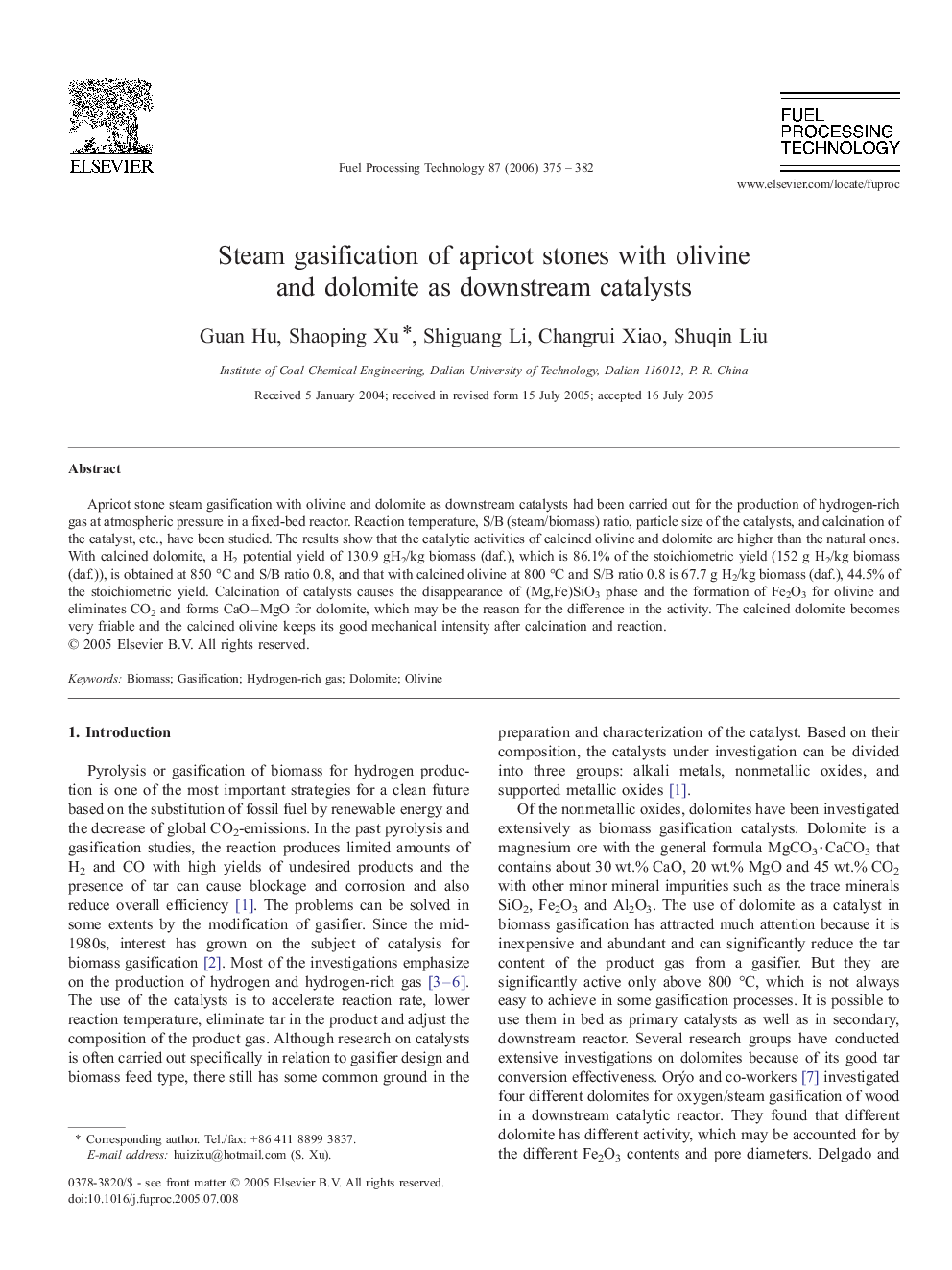| Article ID | Journal | Published Year | Pages | File Type |
|---|---|---|---|---|
| 211641 | Fuel Processing Technology | 2006 | 8 Pages |
Apricot stone steam gasification with olivine and dolomite as downstream catalysts had been carried out for the production of hydrogen-rich gas at atmospheric pressure in a fixed-bed reactor. Reaction temperature, S/B (steam/biomass) ratio, particle size of the catalysts, and calcination of the catalyst, etc., have been studied. The results show that the catalytic activities of calcined olivine and dolomite are higher than the natural ones. With calcined dolomite, a H2 potential yield of 130.9 gH2/kg biomass (daf.), which is 86.1% of the stoichiometric yield (152 g H2/kg biomass (daf.)), is obtained at 850 °C and S/B ratio 0.8, and that with calcined olivine at 800 °C and S/B ratio 0.8 is 67.7 g H2/kg biomass (daf.), 44.5% of the stoichiometric yield. Calcination of catalysts causes the disappearance of (Mg,Fe)SiO3 phase and the formation of Fe2O3 for olivine and eliminates CO2 and forms CaO–MgO for dolomite, which may be the reason for the difference in the activity. The calcined dolomite becomes very friable and the calcined olivine keeps its good mechanical intensity after calcination and reaction.
